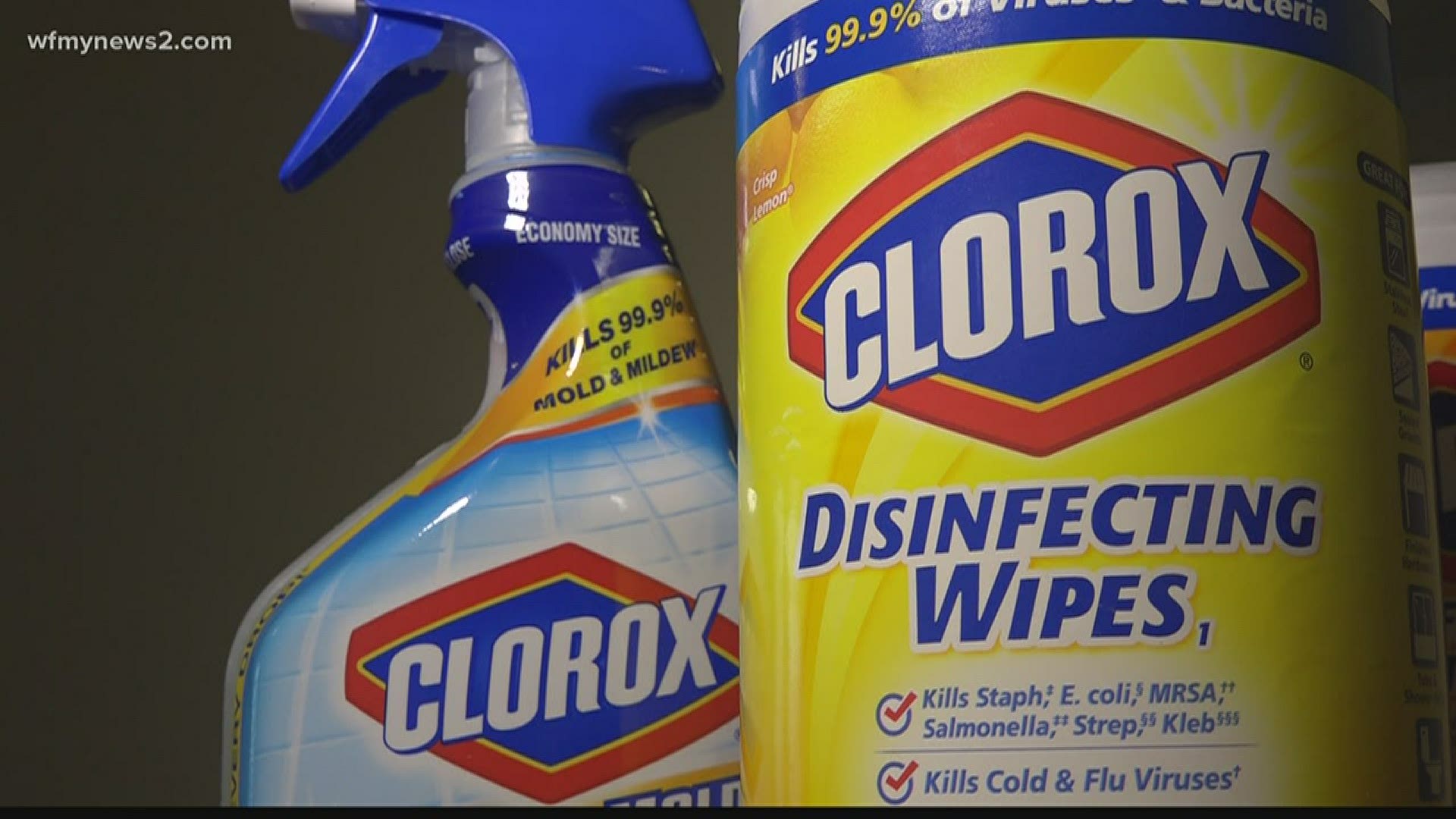GREENSBORO, N.C. — Accidental poisonings are on the rise amid the COVID-19 pandemic. According to a CDC report, calls to U.S. poison centers about cleaner and disinfectant exposures increased by 20-percent over the past three months. Statistics also show more than 300 children are treated in an emergency department every day - and two children die - as a result of being poisoned.
Everyday items in your home, such as household cleaners, can be poisonous to children. Health officials say active, curious children will often investigate - and sometimes try to eat or drink - anything that they can get into.
The CDC offers the following tips to help poison-proof your home, especially during the coronavirus crisis.
- Lock them up and away: Keep medicines and toxic products, such cleaning solutions and detergent pods, in their original packaging where children can’t see or get them.
- Know the number: Put the nationwide poison control center phone number, 1-800-222-1222, on or near every telephone in your home and program it into your cell phone. Call the poison control center if you think a child has been poisoned but they are awake and alert; they can be reached 24 hours a day, seven days a week. Call 911 if you have a poison emergency and your child has collapsed or is not breathing.
- Read the label: Follow label directions carefully and read all warnings when giving medicines to children.
- Don’t keep it if you don’t need it: Safely dispose of unused, unneeded, or expired prescription drugs and over the counter drugs, vitamins, and supplements. To dispose of medicines, mix them with coffee grounds or kitty litter and throw them away. You can also turn them in at a local take-back program or during National Drug Take-Back events.
The Health Resources & Services Administration offers additional tips on how to keep poisonous items safe in your home:
Medicines:
- Keep all medicines, and potentially poisonous substances, in locked cabinets or out of the reach of children.
- Keep medicines in their original containers, properly labeled, and store them appropriately.
- Never share prescription medicines. If you are taking more than one drug at a time, check with your health care provider, pharmacist, or call the toll-free Poison Help line (1-800-222-1222), which connects you to your local poison center, to find out more about possible drug interactions.
Carbon monoxide (CO):
- Have a working carbon monoxide detector in your home. The best places for a CO detector are near bedrooms and close to furnaces.
Household products:
- Keep all household cleaners and potentially poisonous substances in locked cabinets or out of the reach of children.
- Keep products in their original containers.
- Do not use food containers (such as cups or bottles) to store household cleaners and other chemicals or products.
- Keep all laundry products locked up, high, and out of the reach of children.
Chemicals:
- Keep all chemicals and potentially poisonous substances in locked cabinets or out of the reach of children.
- Keep antifreeze and all chemicals and household products in their original containers.
- Never mix household or chemical products together. Doing so can create a dangerous gas.
Back to school and art supplies:
- Some art products are mixtures of chemicals. They can be dangerous if not used correctly. Make sure children use art products safely by reading and following directions.
- Do not eat or drink while using art products.
- Wash skin after contact with art products.
- Clean equipment. Wipe tables, desks, and counters.
- Keep art products in their original containers.
Food:
- Wash hands and counters before preparing all food.
- Store food at the proper temperatures. Refrigerated foods should not be left out at temperatures above 40 degrees F (5 degrees C).
- Use clean utensils for cooking and serving.
Animals and insects:
- Know what poisonous snakes live in your area and wear proper attire (boots, etc.) when hiking outdoors.
- Check the label on any insect repellent. Be aware that most contain DEET, which can be poisonous in large quantities.
Plants, mushrooms and berries:
- Be sure that everyone in your family can identify poisonous mushrooms and plants.
- Remember when it comes to poison ivy, "leaves of three, let it be."

